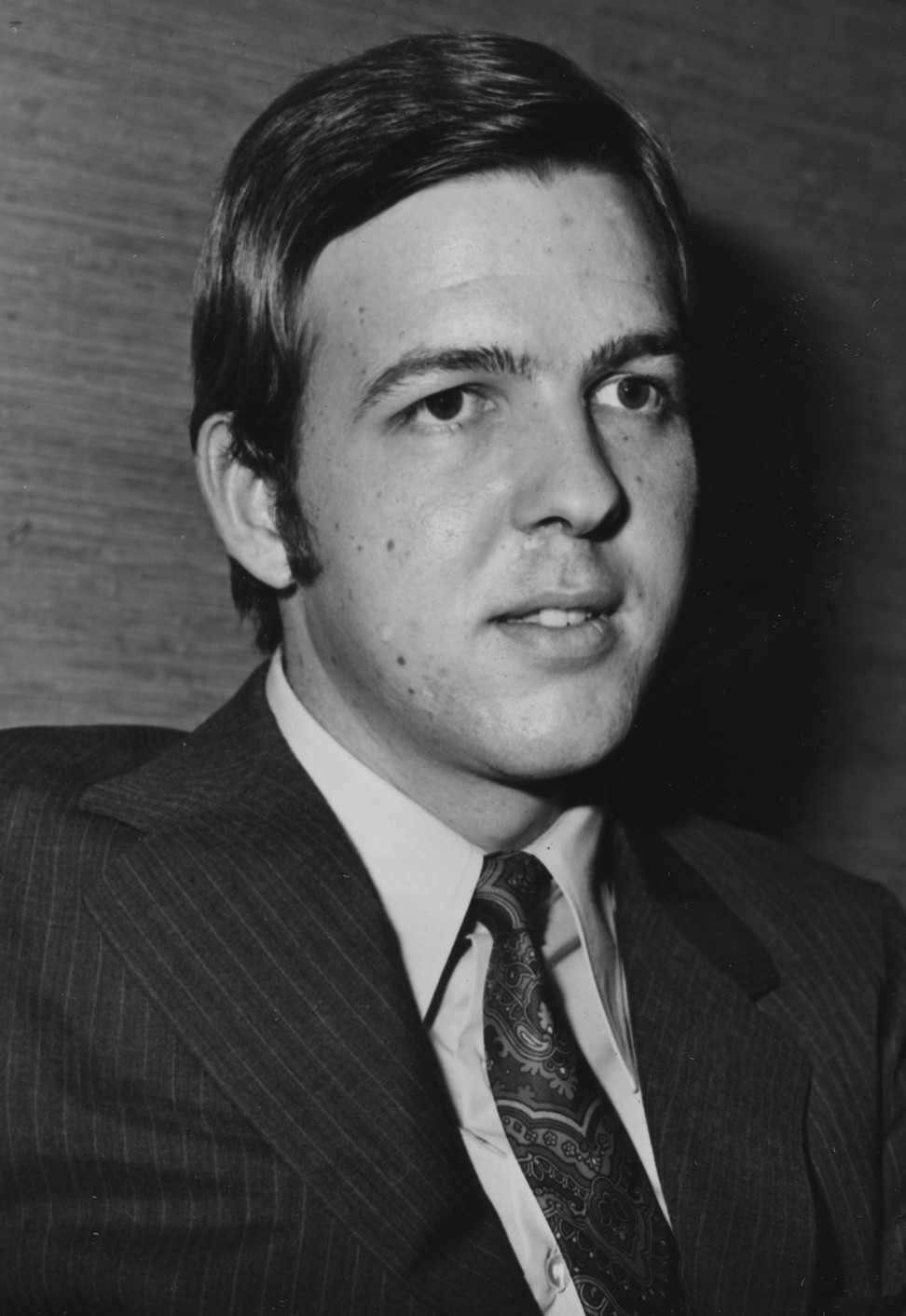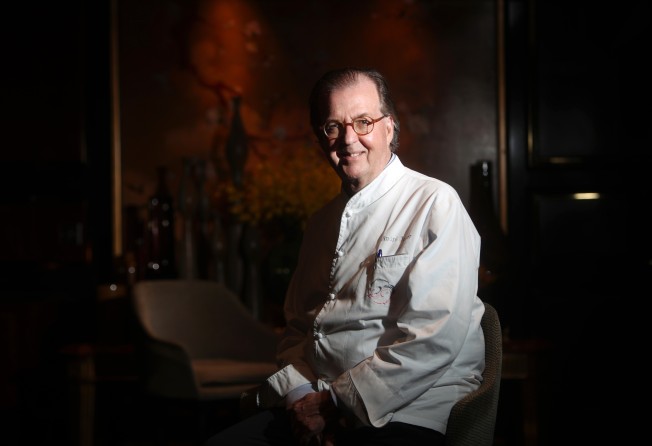
Swiss chef André Jaeger on his Hong Kong years and why he had to leave even though he loved it
- In 1975, after four years at The Peninsula, in Hong Kong, the chef returned to Switzerland to take over his parents’ restaurant, Fischerzunft
- But running his own business was not easy, and it wasn’t until he made some additions to the menu that things changed

Describe your childhood. “I was lucky growing up in the farmhouse restaurant, Fischerzunft, in Schaffhausen [in northern Switzerland], where my parents worked. I went to school in a small village with 200 inhabitants and home smelled of fresh food – we were surrounded by the delicious food that would be served to the guests.”
When did you realise you wanted to become a chef? “By the age of 12. My grandmother was an excellent cook and when our parents didn’t have time for us, we would go to our grandparents. I was the one who stayed most of the time in the kitchen with my grandmother, helping her or tasting what she was preparing. She would go to her garden and pick fresh peas, and I would help her to shell them and cook them with mashed potatoes and roast veal for lunch or dinner.”
What was your apprenticeship like? “I was 15 when I started my three-year apprenticeship in [Beau-Rivage Palace], a five-star hotel in Lausanne. Everything was new for me, like shrimp and lobster. I had never seen caviar before and they used to serve it in the original tins that we brought out to the guests. We would weigh the tin before it went out and then weigh it when it came back and charge the guest [according to how much they ate] but not without us taking a spoon for ourselves!”
Tell us about your time in Hong Kong. “I was ready to leave Switzerland at the age of 23. It had become much too small for me and I wanted to do and see something else. I applied to the St Regis in New York and The Peninsula in Hong Kong after reading brochures and magazines at École Hôteliôère de Lausanne [a hospitality management school].

“The Peninsula’s general manager, Peter Gautschi, called me soon after I had written, in January 1971. He did a quick interview with me over the phone, then hired me as assistant food and beverage manager to start in March. I had to apply for a work permit and in those days there was no internet so it had to be done by telegraph, speed mail and phone.
“When I packed my suitcase I was so ignorant – I brought some free-time clothes, underwear, two shirts, one blazer, two pairs of flannel pants. When I arrived in March, it was blistering hot and humid. I was driven to the hotel in a Rolls-Royce; in those days, The Peninsula had eight Silver Shadows.
“For the first month, I was just walking around and discovering things, and I had errands to do. After three months, one morning, I was told Mr Gautschi wanted to see me and I thought my probation time was up and I hadn’t done anything significant, so he was probably going to send me home. But he explained to me that the F&B manager had hepatitis and was in quarantine and asked if I was capable of taking over the job. I said, ‘Mr Gautschi, I would work day and night to justify your confidence.’”
After four years at The Peninsula you moved back to Switzerland. Why? “My parents came in February 1974 and stayed at The Peninsula. One evening they told me they were tired and couldn’t continue running the farmhouse restaurant. My mother was 10 years older than my dad. They said I had to decide either to come home and take over the business, or they would sell it. They gave me half a year to decide. I was a bit annoyed because I enjoyed Hong Kong so much.
“In the meantime, I had met my wife-to-be [Doreen Soong]. Her father had a house on The Peak. Doreen’s mother was a Chinese tai tai who ran the household the traditional way. I was summoned to the house and Doreen’s father said if my intentions were serious then they would announce the engagement in the newspaper. Doreen was furious, but I said, ‘No, your father is right.’ I was fully accepted into the family after that. That’s where I learned the finer things of Chinese cuisine. Whenever they had a dinner party I was invited and they would always explain to me the dishes they were serving, which had been prepared by a Shanghainese cook.
“To this day, I don’t quite know why I decided to go back, but I finally said yes to my parents. Doreen and I went back at the end of March 1975 and got married in Switzerland that June.”
We started in 1978 with a menu called Aspiration Chinoise. We had the traditional menu on one side and Chinese on the other. In the beginning, people thought this was crazy
What was it like to run your own restaurant? “I thought, having worked at The Peninsula, I can run this small restaurant – no problem. The first two years I was dressed in a suit, greeting guests and taking orders. The guests thought this was peculiar because they expected me to be in the kitchen. In the 1970s, while I was in Hong Kong, there was a revolution in Europe called nouvelle cuisine. Since we had no internet, the news didn’t travel as fast as it does today. We heard of [chef Paul] Bocuse and the Troisgros family [of restaurateurs] revolutionising French cuisine, but didn’t know much about it. So when I got back, this hit me full strength.”
What did you do? “Finally, I did go back into the kitchen, but was completely lost. I tried to copy other restaurants, but in the end Doreen and I felt so homesick for Hong Kong. One night, at 2am, I made fried rice with peas, eggs, ham and sesame oil. It was the best fried rice of my life. Doreen and I ate it and decided to pick up the courage and do some Asian dishes with European food. The next day I went down to the kitchen, tried to make dim sum, spring onion cake and steamed fish Cantonese style, and it didn’t turn out that bad.
“We started in 1978 with a menu called Aspiration Chinoise. We had the traditional menu on one side and Chinese on the other. In the beginning, people thought this was crazy, neither here nor there. It took about three years to really take off. Food critics began to write about us, including an article in Gourmet magazine. We had American guests come in with the article. We ran the restaurant for 40 years. For 20 consecutive years we got 19 out of 20 points in Gault Millau [a restaurant guide].
“When I was entering my 70s, I was looking for someone to take over, but young chefs didn’t have the money, or were scared to take over from someone well known. I finally decided to close the restaurant in 2015. I don’t regret it. We made the announcement five months prior to the closure and were full every day.”
André Jaeger was recently a guest chef at the Conrad Hong Kong.